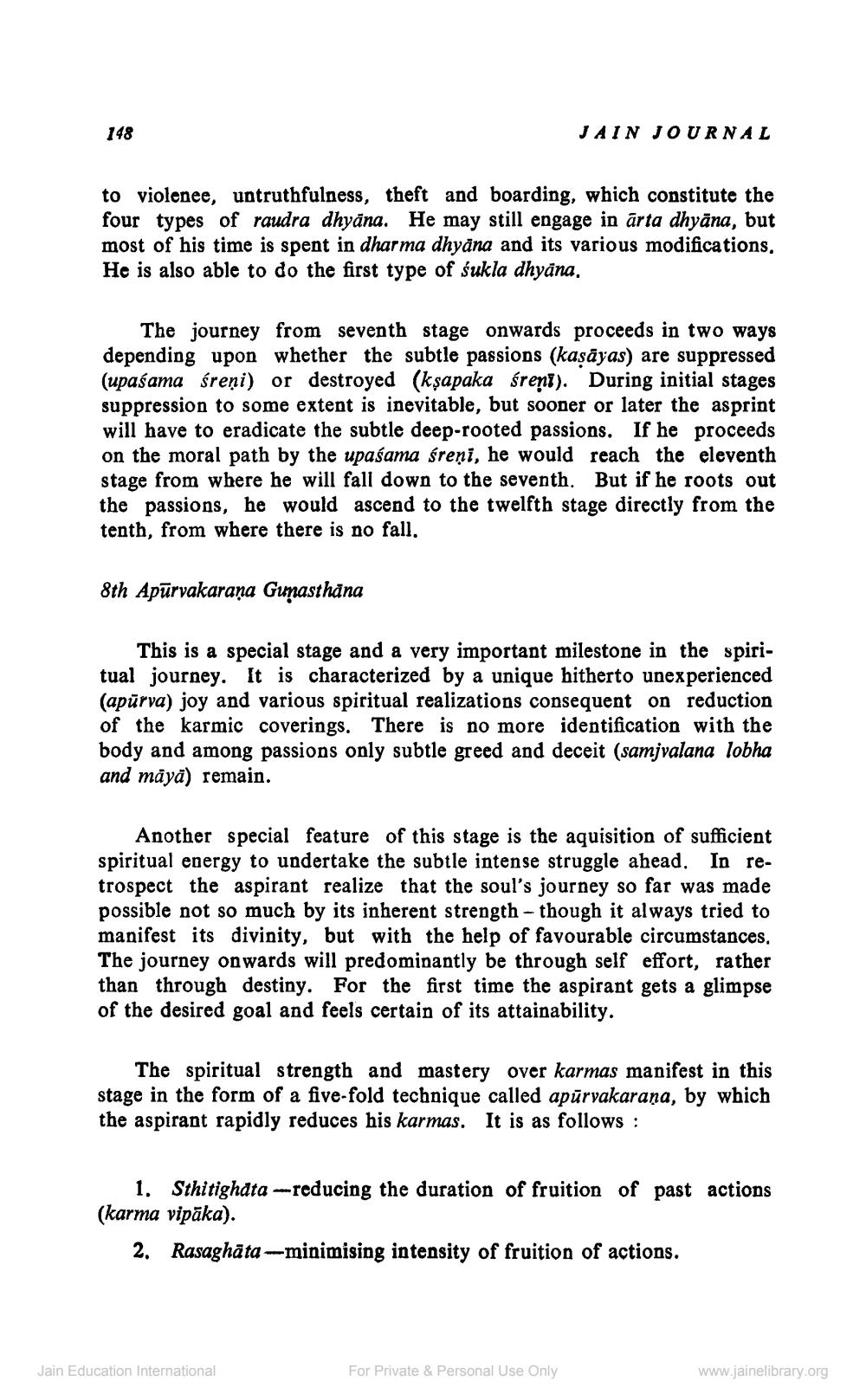________________
148
JAIN JOURNAL
to violenee, untruthfulness, theft and boarding, which constitute the four types of raudra dhyāna. He may still engage in arta dhyāna, but most of his time is spent in dharma dhyana and its various modifications, He is also able to do the first type of śukla dhyana.
The journey from seventh stage onwards proceeds in two ways depending upon whether the subtle passions (kasayas) are suppressed (upasama śreņi) or destroyed (kşapaka śreni). During initial stages suppression to some extent is inevitable, but sooner or later the asprint will have to eradicate the subtle deep-rooted passions. If he proceeds on the moral path by the upasama śreni, he would reach the eleventh stage from where he will fall down to the seventh. But if he roots out the passions, he would ascend to the twelfth stage directly from the tenth, from where there is no fall.
8th Apūrvakarana Gunasthana
This is a special stage and a very important milestone in the spiritual journey. It is characterized by a unique hitherto unexperienced (apūrva) joy and various spiritual realizations consequent on reduction
the karmic coverings. There is no more identification with the body and among passions only subtle greed and deceit (samjvalana lobha and māyā) remain.
Another special feature of this stage is the aquisition of sufficient spiritual energy to undertake the subtle intense struggle ahead. In retrospect the aspirant realize that the soul's journey so far was made possible not so much by its inherent strength - though it always tried to manifest its divinity, but with the help of favourable circumstances, The journey onwards will predominantly be through self effort, rather than through destiny. For the first time the aspirant gets a glimpse of the desired goal and feels certain of its attainability.
The spiritual strength and mastery over karmas manifest in this stage in the form of a five-fold technique called apūrvakarana, by which the aspirant rapidly reduces his karmas. It is as follows:
1. Sthitighata -reducing the duration of fruition of past actions (karma vipāka).
2. Rasaghāta --minimising intensity of fruition of actions.
Jain Education International
For Private & Personal Use Only
www.jainelibrary.org




